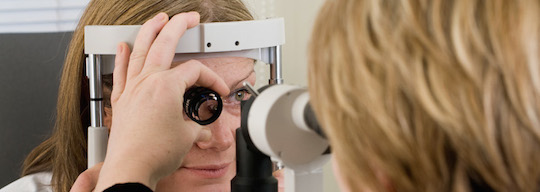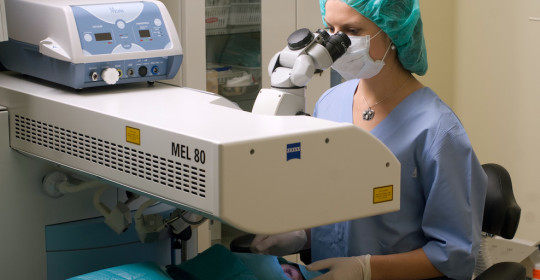Laser eye surgery applies a specialized light beam to reshape the eye’s cornea – to change its curvature and ability to refract beams – for improvement of visual acuity. Laser evaporates precise amount of corneal tissue without inducing thermal effect. This provides a higher precision for the surgeon. However, there are several myths about laser eye surgery (or refractive surgery). Some of them might have been true in the past, but are no longer an issue. Others are just plain myths with no basis at all.
The procedure is very painful
One of the most common myths about vision correction is that it is painful. Actually the surgery is almost painless. Anesthetic eye drops numb your eyes just before the procedure, which takes about 15–20 minutes for both eyes. Patients can feel mild discomfort during the procedure. The rest is usually stress and anxiety about having the surgery.

You can become blind from laser correction
Complications caused by laser surgery are extremely rare. There are no reported cases of anyone going blind from laser vision correction. The most common and usually temporary side effect is dry eyes. The condition can be managed with prescription eye drops.
A patient is exposed to long term repercussions
Many patients fear that operation can result in long-term recuperation. That is not true. After the surgery you need to avoid smoke or fog for the first few days, as you might feel a little uncomfortable, avoid swimming/diving for at least four – six weeks, and do not rub your eyes for a week or two. Patients can resume usual activities in two weeks. A month after the surgery, you can restart all physical activities. However, contact sport can be exercised only twelve weeks later.

High cost
Currently doctors practice various types of laser eye surgeries. Not all of them are expensive. The surgery cost is defined by several factors: the clinic, the type of medical device, and the specific procedure that your doctor recommends.
Laser surgery is a cure for all vision related problems
While it is true that advanced technology provides help to patients with major vision problems, but it cannot promise to cure-it-all. Laser eye surgery can correct astigmatism, nearsightedness and farsightedness. However, senior patients who have had laser surgery are still susceptible to presbyopia (age-related nearsightedness). If a patient has a severe case of nearsightedness or farsightedness laser correction cannot be performed.
However, cases differ, and whether you qualify for a refractive surgery or not depends on several factors – the degree of refractive error, thickness of cornea, etc. If you are thinking about laser surgery, visit your ophthalmologist. Your doctor will provide you with full information and determine whether it is possible to perform laser surgery. Don’t let myths intimidate you.

